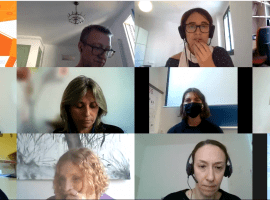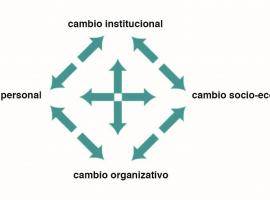The new tenants cooperative ‘BlocCooperatiu’ is supposed to continue the work of mobilising private empty flats for the affordable rental housing market in Mataró and to manage them. However, the previous funds of the UIA programme will no longer be available.
The current viability plan states that the necessary conditions for the long-term viability of the cooperative are not yet in place to be able to continue the ‘Yes, we rent!’ housing scheme in its full scope (e.g. incentive scheme for landlords) on a financially independent basis. E.g. the current level of rents is too low and the cooperative would need to acquire in the next five years annually at least 18 vacant flats to be able to pay for a stable staff of 1,5 persons for managing the cooperative.
Thus, it is an ongoing task to attract more apartments for the 'Yes, we rent!' housing scheme. One approach could be to not only focus on vacant flats in Mataró, but also to extend the offer to flats for which a change of tenant is upcoming or for which the flat is to be rented for the first time.
Since an important incentive so far for owners has been the financial support, but funding from the UIA programme is no longer available, new incentives need to be considered.
If in the future the 'Yes, we rent!' housing scheme also includes flats that are not vacant, it can be assumed that the renovation costs for these flats will be lower. In this case, it might be possible for the cooperative to finance these costs. In return, the rental income would be available to the cooperative until the renovation costs, including a service fee, are paid. This way, the owners would not have to go into debt or take out loans. In order for the cooperative to be able to pre-finance these costs, either the municipality could provide an interest-free loan or act as a guarantor with banks.
The municipality could also take out insurance for loss of rent for the cooperative, which would cost comparatively little to the municipality.
Another incentive could be that flats can also be rented up to the average market rent, but then to more fair conditions e.g. a rental deposit of one instead of three months.
Furthermore, the cooperative should consider incentives that will bind the owners to the cooperative in the long term to have sufficient continuous access to flats to be rented below the average market rent to its members. Key to this is that the cooperative keeps its “promises” especially with regard to regular rent payments and responsible tenants who handle the flat with care and do not cause problems with other tenants. For many owners it is important to burden themselves as little as possible with the flat and the tenants. For this the cooperative needs to develop a good reputation on the rental market.
Satisfied owners could also serve as "ambassadors" and potential reference person for other interested owners. Owners might be better able to convince other owners. For generally interested owners also an information meeting together with the “ambassadors” could be organised during which they could present their experience and answer questions from interested owners.
Non-monetary benefits can also contribute to bonding with the cooperative, e.g. identification with the goals and values of the cooperative, or landlords could be involved in social and community activities and services of the cooperative.
In general, it is seen as necessary that the cooperation between the cooperative and the municipality continues at least until the moment when the cooperative can financially continue the 'Yes, we rent!' housing scheme. But even beyond that, cooperation can be beneficial for both sides in order to ensure affordable rental housing in Mataró.
The continued cooperation could be an opportunity for both sides. The cooperative could help putting the municipal housing policy on a broader base, inject citizen social capital and collective efforts and bypass some bureaucratic constraints the city council has to face. On the other side, the municipality could bring the cooperative housing to a new level by acting as legal guarantors, facilitating access to finance and buildings and providing technical support.
With regards to the cooperative, long-term it should be considered whether the cooperative can be put in a position to buy flats or whether the municipality buys up flats that are rented through the cooperative. Such and other forms of cooperation between the municipality and the cooperative needs to be investigated to continue with the mobilisation of private empty flats for the affordable rental housing market in Mataró.





























